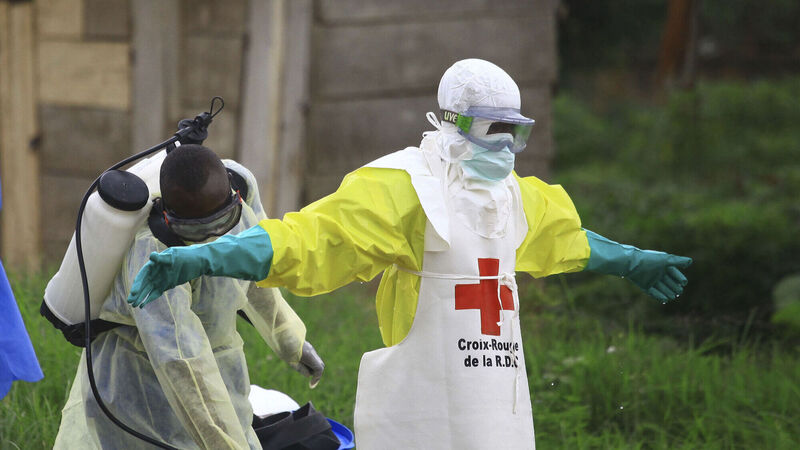Experts warn of another coronavirus or Ebola outbreak due to climate change

The deadly blood haemorrhagic Ebola virus, for example, is transmitted to people from wild animals and spreads in the human population through human-to-human transmission, with the fruit bat considered by medical experts as the most likely host. File photo: AP/Al-hadji Kudra Maliro
The next pandemic from diseases such as Ebola or another coronavirus could occur because of the impact of climate change on animal habitats, leading research has found.
Scientists from the prestigious Georgetown University in Washington DC led an international study, published in the international journal , that suggested global warming would force animals to venture to new habitats in the future.
It is likely they would gravitate towards regions with a significant human population, providing a "stepping stone" for viruses and diseases such as Ebola or coronaviruses to more easily migrate from host to host. Biodiversity faces an existential threat due to climate change, as well as human communities.
The scientists studied the journeys species will make as they settle into new areas, and predicted that the more that they come across other mammals for the first time, thousands of viruses could be passed on.
Lead author Dr Colin Carlson, assistant research professor at the Center for Global Health Science and Security at Georgetown University Medical Center, said it was akin to the wildlife trade becoming uncontrollable.
“We worry about markets because bringing unhealthy animals together in unnatural combinations creates opportunities for this stepwise process of emergence - like how SARS jumped from bats to civets, then civets to people. But markets aren’t special anymore - in a changing climate, that kind of process will be the reality in nature just about everywhere," he said.
The deadly blood haemorrhagic Ebola virus, for example, is transmitted to people from wild animals and spreads in the human population through human-to-human transmission, with the fruit bat considered by medical experts as the most likely host.
Bats are of particular concern when it comes to viruses spreading, the scientists said. Bats will fly greater distances to escape rising temperatures, while also passing on viruses, especially in Asia, the modelling suggested.
It adds "another layer to how climate change will threaten human and animal health," co-lead author Dr Gregory Albery said.
CLIMATE & SUSTAINABILITY HUB





